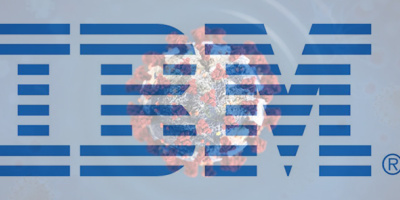Compared to most cultures, Americans don’t do well with authority and, by extension, authority figures. Ever since a handful of upstarts made that point clear to King George III and the British, our heroes and cultural icons have been people who make their own rules and live life on their own terms. From Amelia Earhart to Madonna, from Frank Sinatra to Dennis Rodman, we admire and celebrate the virtues of “doing it my way.”
It is therefore unfortunate that just about the time most of us shed one set of authority figures, our parents, we acquire another, workplace managers. Not surprisingly, managers (like parents), or anyone else who, by position of leadership, is viewed as inherently suspect, become convenient targets for our discontent. Everywhere I’ve worked, a good deal of employee interaction has been devoted to expressing dissatisfaction with the perceived unfairness or stupidity of management. Employees with little else in common frequently form entire relationships forged upon mutual dislike of their manager. Many an after-work cocktail is consumed while recounting tales of supervisory injustice. Solidarity, it seems, can be found in bilateral blame.
Some of what is projected on management is doubtless deserved, but much of it is not. Those who have made the transition from employee to manager know things look different from the side of the desk with the padded chair. Managers are often caught in a crossfire from above and below, compelled to abide by and implement policies not of their choosing, balancing the sometimes conflicting interests of company and employee while maintaining their own personal integrity.
Like a mountain, the power to bestow and revoke employment creates its own climate. Those uncomfortable in its shadow cope by heaping equal parts expectation and abuse on the object of their discomfort and hope for better weather. But what are the effects on the manager? What are the prices paid? What is the private reality of being in a position of authority? How do managers honestly view their employees? What things are left unsaid? What are the limits of loyalty, and can they be stretched in support of all who deserve it?
I invited three managers to speak candidly about their experiences. Here are their insights.
What are the prices have you paid for being a manager?
Allen: I was surprised by what a lonely place it could be. Making the transition from peer to manager immediately set me apart from people who, just yesterday, were friends. When I was an employee, behaviors I found acceptable or even amusing from my peers (or, more accurately, my co-conspirators) were suddenly not so desirable from the perspective of management. Saying “no” or “stop” to friends was not easy. Telling them what to do was even harder. Overnight, our relationship changed. Suddenly, I was “one up,” and not everyone liked it, least of all me. I wanted the same easy, casual relationships I’d had, but that was no longer possible.
Robert: The price for being a manager always starts with your principles and always ends with your self-esteem. Whether you toe the company line or try being everything to everybody, regardless of your intention you can never be “yourself” once you’ve taken on the job.
Sheila: To a degree, that’s true. With the title comes the mantle, the unspoken expectation of perfection. During most of my first year in management, I was petrified. I was new, and there was a great deal I had to learn. I wanted to ask for help but couldn’t. I was hired to come up with solutions, so I couldn’t very well go to my boss for answers, and I was too embarrassed to ask my staff because they were looking to me for direction.
What was your biggest challenge as a new manager?
Allen: I knew how to motivate myself, but I had no idea how to motivate others. When I was on staff, how others did their jobs had little impact on me. Now, if schedules slip or someone from another department complains, it reflects on me. But skills that made me a good team player didn’t necessarily make me a good manager. I had to learn a whole new set of skills. I found there’s a difference between managing and leading. Leadership, I think, is largely a natural capacity; managing has to be learned.
Sheila: Shortly after I was hired, our company went through a downsizing cycle, and I felt this awesome, almost frenetic responsibility to keep everyone employed. I pushed my staff to do a tremendous amount of work, to be as indispensable as possible. Still, in the end I was told to trim my staff by three. To the company, they were just headcount, but, to me, they were real people, and the pain I caused them was very real. For a couple of months, I didn’t get much sleep.
Robert: The challenge was maintaining friendships with the people for whom I was really trying to work. If you’re a “bottoms up” manager, protecting your staff, they will be the first ones to desert you. If you’re a “tops down” manager, trying to achieve the goals of your superior, his contempt will be the first thing to raise a welt on your conscience. And if you try to do what’s “right,” you’ll find yourself alone in a forest of indecision that is filled with the echoes of your coworkers’ complaints and management’s abuse. I sometimes think management is not a career but a repayment of all of your sins.
Sheila: Another challenge was the multiplicity of roles I was suddenly asked to perform. I went from an employee concerned with myself to coach, cheerleader, mother confessor, confidant, expediter, enforcer, counselor, mentor, peacemaker, and so on. I’m still learning when to switch roles. I like people, and it’s easy for me to get caught up in their personal dramas and lose sight of what needs to be done. They, of course, know that, and some take full advantage.
Where does your loyalty lie? With the company, the employees, or yourself?
Allen: I don’t think you can be loyal to only yourself and be a good manager. Robert: Or a good human being, for that matter. Allen: A lot of it depends on how ambitious you are. The more aggressive types walk over employees to get ahead. And they walk over other managers, too. They’re like sharks, always trolling for new territory to gobble up. Most, I think, myself included, want
the best for their employees, but something strange happens as you climb higher up the management ladder. The atmosphere gets rarer, and the survival rate drops. You become aware of your own impermanence. I recall being in a management meeting where I was about to make a risky, you-bet-your-job recommendation that I knew would benefit my department. Then, it occurred to me that I had this very big house with a very big mortgage, three automobiles, a boat, and two kids, one of whom was about to enter college. I was juggling a lot, and, suddenly, risk was no longer my friend. It wasn’t so much my loyalty but my courage that deserted me.
Sheila: I certainly feel loyal to the company that signs my paycheck and to the people I work with every day. But loyalty doesn’t mean bad things don’t happen. They do, and it’s seldom a clear-cut case of choosing from column A or column B. Where interests conflict, I have to look at my personal values and make a decision I can live with. The difficult part is that employees don’t ever see the process; they just see the result, like a layoff or a demotion. They don’t see the agony that went into the decision.
Robert: Loyalty is rapidly becoming a quaint concept when companies lay off tens of thousands to bolster record profits. I don’t think corporations have the same commitment to employees they once had, so the trust just isn’t there. Loyalty, to me, is a personal commitment to do the very best I can each moment for the people who report to me.
What do you want employees to know?
Allen: That many of us, when we started, were totally untrained, and we fumbled about until we found our way.
Robert: [Laughing] Yeah, well, that was probably pretty clear. Allen: And that we’re doing the best we know how to do. Sheila: And that your manager fights for you in ways you will never know, that there can be tremendous pressure from above that employees never see. So a little compassion is always appreciated.
Robert: [Quiet for a moment] A mentor once told me that your job is only as good as your last manager. I want everyone to have a good job.
And, as for me, I offer a slight variation of the advice offered by critic Isaac Goldberg in 1938. “Let us have patience with our inferiors,” he said. “They are ourselves of yesterday.”
So, too, are our superiors.





















 More than ever, there is a demand for IT to deliver innovation. Your IBM i has been an essential part of your business operations for years. However, your organization may struggle to maintain the current system and implement new projects. The thousands of customers we've worked with and surveyed state that expectations regarding the digital footprint and vision of the company are not aligned with the current IT environment.
More than ever, there is a demand for IT to deliver innovation. Your IBM i has been an essential part of your business operations for years. However, your organization may struggle to maintain the current system and implement new projects. The thousands of customers we've worked with and surveyed state that expectations regarding the digital footprint and vision of the company are not aligned with the current IT environment. TRY the one package that solves all your document design and printing challenges on all your platforms. Produce bar code labels, electronic forms, ad hoc reports, and RFID tags – without programming! MarkMagic is the only document design and print solution that combines report writing, WYSIWYG label and forms design, and conditional printing in one integrated product. Make sure your data survives when catastrophe hits. Request your trial now! Request Now.
TRY the one package that solves all your document design and printing challenges on all your platforms. Produce bar code labels, electronic forms, ad hoc reports, and RFID tags – without programming! MarkMagic is the only document design and print solution that combines report writing, WYSIWYG label and forms design, and conditional printing in one integrated product. Make sure your data survives when catastrophe hits. Request your trial now! Request Now. Forms of ransomware has been around for over 30 years, and with more and more organizations suffering attacks each year, it continues to endure. What has made ransomware such a durable threat and what is the best way to combat it? In order to prevent ransomware, organizations must first understand how it works.
Forms of ransomware has been around for over 30 years, and with more and more organizations suffering attacks each year, it continues to endure. What has made ransomware such a durable threat and what is the best way to combat it? In order to prevent ransomware, organizations must first understand how it works. Disaster protection is vital to every business. Yet, it often consists of patched together procedures that are prone to error. From automatic backups to data encryption to media management, Robot automates the routine (yet often complex) tasks of iSeries backup and recovery, saving you time and money and making the process safer and more reliable. Automate your backups with the Robot Backup and Recovery Solution. Key features include:
Disaster protection is vital to every business. Yet, it often consists of patched together procedures that are prone to error. From automatic backups to data encryption to media management, Robot automates the routine (yet often complex) tasks of iSeries backup and recovery, saving you time and money and making the process safer and more reliable. Automate your backups with the Robot Backup and Recovery Solution. Key features include: Business users want new applications now. Market and regulatory pressures require faster application updates and delivery into production. Your IBM i developers may be approaching retirement, and you see no sure way to fill their positions with experienced developers. In addition, you may be caught between maintaining your existing applications and the uncertainty of moving to something new.
Business users want new applications now. Market and regulatory pressures require faster application updates and delivery into production. Your IBM i developers may be approaching retirement, and you see no sure way to fill their positions with experienced developers. In addition, you may be caught between maintaining your existing applications and the uncertainty of moving to something new. IT managers hoping to find new IBM i talent are discovering that the pool of experienced RPG programmers and operators or administrators with intimate knowledge of the operating system and the applications that run on it is small. This begs the question: How will you manage the platform that supports such a big part of your business? This guide offers strategies and software suggestions to help you plan IT staffing and resources and smooth the transition after your AS/400 talent retires. Read on to learn:
IT managers hoping to find new IBM i talent are discovering that the pool of experienced RPG programmers and operators or administrators with intimate knowledge of the operating system and the applications that run on it is small. This begs the question: How will you manage the platform that supports such a big part of your business? This guide offers strategies and software suggestions to help you plan IT staffing and resources and smooth the transition after your AS/400 talent retires. Read on to learn:
LATEST COMMENTS
MC Press Online